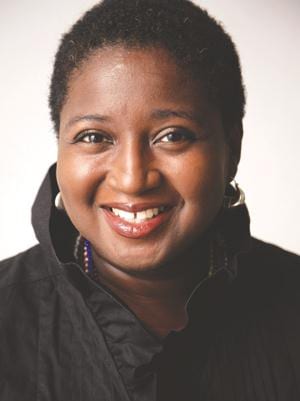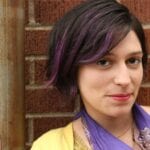Notisha Massaquoi thinks that many queer people, especially immigrants and people of colour, still don’t feel welcome at the Pride parade. She hopes a new workshop, Bringing Your Whole Self to Pride, will get people talking about those who feel isolated at Pride — and what they and their allies can do about it.
The Ontario Public Service Employees Union and the Rainbow Health Network will present Massaquoi’s talk, which will be followed by an open discussion.
“[OPSEU] felt they had members that weren’t able to validate their whole selves, who had to make choices,” says Massaquoi, executive director of the Women’s Health in Women’s Hands community centre. “It’s either ‘I’m queer or I’m a person of colour.’ It’s either ‘I’m this or I’m that,’ like you can never be queer and all of yourself at the same time.”
Philip Shearer is the vice-chair of Rainbow Alliance, OPSEU’s queer group. “Even in the labour movement and in the Canadian LGBTQ community, there’s still a lot of people who have to hide to come to Pride,” he says.
Shearer, who works in children’s mental health, says there are a lot of people who are afraid to be out in his field.
“There’s lots of people . . . who just pass,” he says. Shearer also points to people of colour working in prisons and says people who crossdress at work are told they’re confusing their clientele.
When people do come to Pride, Shearer says, “they can be there but their family may not know, their co-workers may not know . . . there’s still portions of themselves that they hide.”
Because the event may feature a lot of people who are already out, Shearer hopes to talk about how to make queer people who aren’t out feel safer. “It’s going to reinforce how to be allies,” he says.
Brian De Matos, who helped plan the event, is vice-chair of Toronto’s Rainbow Health Network. De Matos is also a member of Queers Against Israeli Apartheid. He says he felt excluded from Pride when QuAIA’s participation became the catalyst for the city to threaten the festival’s funding.
De Matos is sensitive to the lack of places to talk about issues facing trans people and people of colour in Pride, as well as Pride’s “fatphobia.” He thinks a space to talk about his experiences will alleviate that.
“Whose Pride is it, anyway?” he says. “When you look at Pride, you see all these white pretty boys that dominate the space.”
Massaquoi says people who feel isolated at Pride have to speak up and get involved. “You wish people with more power would do it for you, but it’s not always going to happen,” she says. “We have to actually push Pride and keep challenging them to use an anti-oppression lens when they’re distributing their resources.”
Massaquoi felt a sense of validation when Pride honoured Uganda’s Victor Mukasa in 2009. “It meant a lot for many of us,” she says, noting that she marched with the international queer activist. “For once I could actually see . . . some understanding of what those of us from Africa were experiencing.”
But Massaquoi still wants more from Toronto’s gay festival. “You don’t want to wait until you have one of those big moments,” she says.


 Why you can trust Xtra
Why you can trust Xtra


